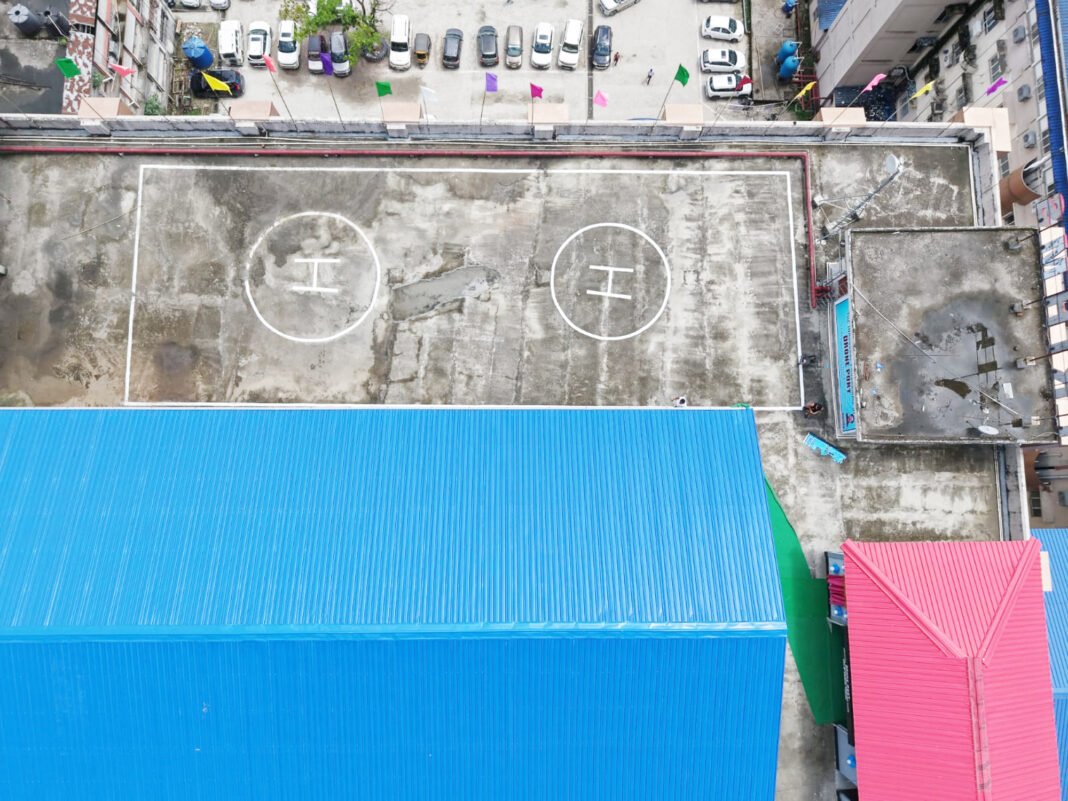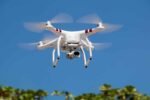HT Correspondent
NAHARLAGUN, July 2: In a significant development aimed at enhancing healthcare access and emergency response in remote regions of Arunachal Pradesh, a dedicated drone port was inaugurated at the rooftop of Tomo Riba Institute of Health & Medical Sciences (TRIHMS) on Tuesday.
The facility is expected to facilitate the timely delivery of life-saving medicines, anti-venom, and even human organs during emergencies across the state.
The inauguration was led by Dr Moji Jini, Director of TRIHMS, in the presence of several senior officials, including Dr D Raina, chief medical superintendent of TRIHMS; Dr H Dutta, director of Arunachal Pradesh Space Application Centre (APSAC); Dr Liagi Tajo, joint director and nodal officer of APSAC; Neylam That, Deputy Director and Liaison Officer; and Chau Ken Manlong, Deputy Director of APSAC. Officers and staff from both TRIHMS and APSAC also attended the occasion.
According to an official statement, the establishment of the drone port marks a strategic step in leveraging drone or Unmanned Aerial Vehicle (UAV) technology to bridge critical gaps in the delivery of essential health services.
Dr Jini commended APSAC for its initiative and stressed the importance of integrating drone-based systems into the healthcare supply chain, particularly in a geographically challenging state like Arunachal Pradesh.
He assured full institutional support for the operationalisation of the drone port.
Highlighting the multiple applications of drone technology, officials stated that UAVs can offer immense advantages across various sectors, including natural resource monitoring, road and power line alignment, 3D mapping, and disaster response.
In the health sector, the “Medicine from the Sky” programme has already demonstrated promising results over the past few years in the state, transforming how medical supplies reach difficult terrains.
APSAC, based in Itanagar, has actively employed drone technology for tasks such as resource mapping, surveillance, and infrastructure planning.
The agency has also collaborated with the State Health and Family Welfare Department to pilot experimental drone-based medical deliveries in several regions of Arunachal Pradesh.
Building on these successes, APSAC is now initiating the establishment of drone ports at multiple locations across the state.
These ports are designed to accommodate various types of drones, including Vertical Take-off and Landing (VTOL) and Short Take-off and Landing (STOL) aircraft, and will be equipped with infrastructure for drone storage, maintenance, and operational control.
Officials said that such infrastructure is critical to scaling up drone operations, especially in a state marked by difficult terrain and poor road connectivity in many districts.
The newly inaugurated port at TRIHMS is envisioned as a model hub that can support time-sensitive deliveries of critical medical cargo to remote and underserved areas.
The inauguration of this drone port is seen as part of a broader effort to integrate cutting-edge technology into public service delivery and improve outcomes in sectors like health, disaster management, and agriculture.
With the successful implementation of the drone programme, Arunachal Pradesh is poised to become a frontrunner in deploying UAVs for inclusive development and public welfare.












